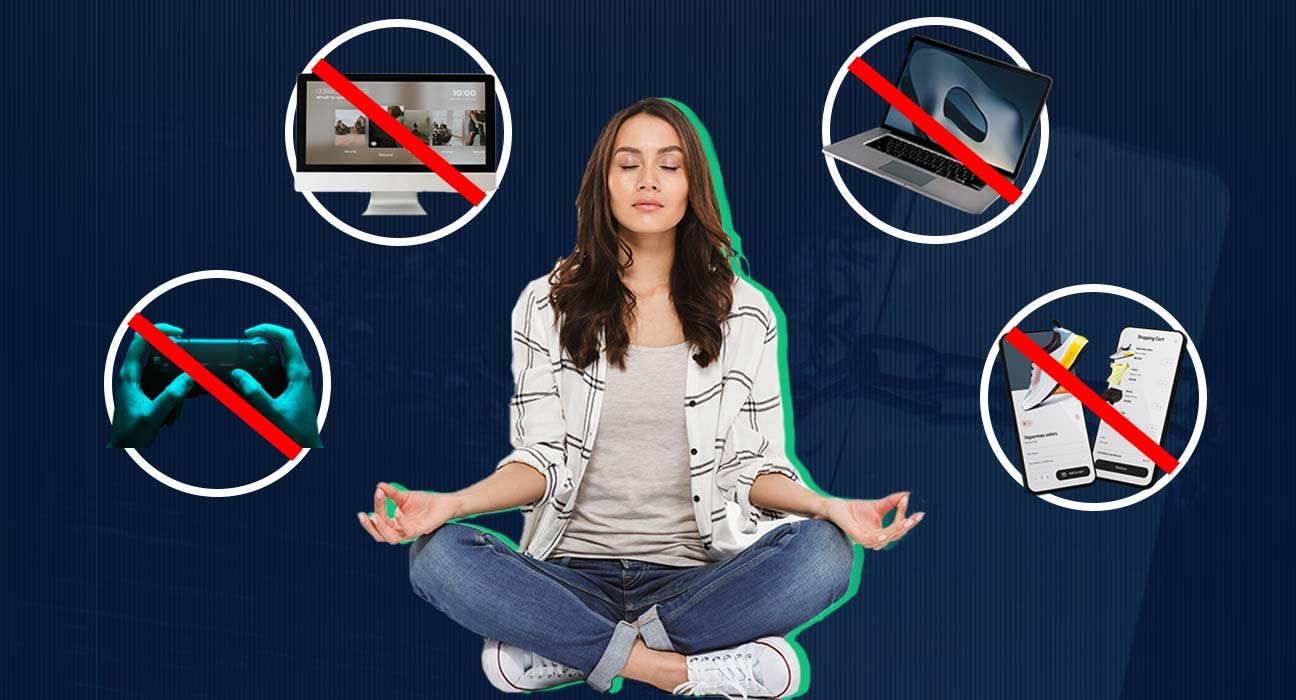The modern developments in the world have led to a fast-paced digital landscape where constant connectivity dominates the consciousness of the masses. The mediums of communication have transformed into a digitized form and thus digital media and communication platforms have grown so immensely over the years along with that they have solidified themselves into the foundational workings of daily life. Thus, the concept of a digital detox has developed along with the evolution of digital platforms.
It refers to a conscious and temporary break from technology that allows individuals to disconnect, recharge, and reconnect with the physical world and its reality. Moreover, as the boundaries between the digital and reality blur, exercising digital detox has become a prime practice than ever.
To begin the discussion about digital detox there exists a need to contextualize the time and the dilemma that arises because of the practice.
The digital age has revolutionized the forms of communication, work, and entertainment. However, this has increased the incoming notifications and social media updates resulting in an information overload and heightened levels of stress with the constant influx. As reality becomes the digital realm at the fingertips, it becomes a slippery slope where compulsive scrolling, binge-watching, and scattered multitasking become a vicious loop.
As this is the era that is dominated by digital connectivity, the idea of a digital detox has transcends the realm of the newest buzzwords and evolves into a necessity to maintain psychological well-being. For that, there needs to understand and contextualize the psychological aspects that give the concept its relevance.
The Happy Hormones Chase
Digital interactions release happy hormones. And creates a cycle of reward-seeking behavior and also leads to compulsive checking of devices and platforms.
Fear of Missing Out (FOMO)
FOMO here is fear of missing out on social events or online experiences that can drive excessive technology use.
There exists a need for Digital Detox as a Mental Health Intervention because the curated nature of social media leads to an authenticity crisis where individuals compare real lives to the idealized versions presented online. Social media platforms have algorithms that keep users engaged. This erodes self-esteem and contributes to feelings of inadequacy. Engaging in a digital detox provides an opportunity to reconnect with the authentic self and becomes free from the pressures of performing from the online audience resulting in a positive self-image and improved mental well-being.
Embracing Boredom and Reflection is essential because in a hyper-connected world, moments of solitude and boredom are now rare commodities. These mundane experiences are essential for self-reflection, creativity, and personal growth. By disconnecting from the digital realm, individuals can relearn the art of being present in the moment, fostering deeper introspection and a greater appreciation for life’s subtleties.
The positives of digital detox
1. Mental Clarity
Without the constant buzz of notifications, the mind gets a chance to rest and reset. This often leads to improved concentration, enhanced creativity and a clearer thought process.
2. Reduced Stress
Stepping away from digital noise lowers stress and anxiety levels. It allows individuals to break free from the pressure to keep up with virtual demands
3. Enhanced Relationships
Spending quality time with loved ones fosters deeper and meaningful connections.
4. Improved Sleep
Exposure to screens, especially before bedtime disrupts sleep patterns due to the blue light emitted by devices. A digital detox helps regulate sleep and improves sleep quality.
5. Reduce Anxiety
A break from the constant stream of information allows the mind to relax, reducing feelings of overwhelm and anxiety.
6. Enhance Mood
A digital detox can lead to improved mood and a sense of calm as one no longer receive negative triggers from online content.
7. Boost Self-Esteem
Detaching from the online performance arena gives individuals the freedom to appreciate their authentic selves, boosting self-confidence and self-worth.
8. Reclaim Focus
The concept of continuous partial attention is a result of being constantly online, thus never being fully present takes a toll on mental health. Distractions from constant notifications are eliminated, thus resulting in regaining the ability to focus deeply on tasks.
Now with everything contextualized, here are some tips for practicing mindfulness in interacting online and practicing digital detox.
1. Set Clear Goals
Plan objectives for the detox period.
2. Notify Contacts
Inform people around about the detox so it does not harm relationships along with establishing the reason for the limited availability.
3. Designate Tech-Free Zones
Create spaces in the environment where digital devices are not present. This establishes a healthy boundary between technology and personal space.
4. Use apps Wisely
There are apps designed to track and manage screen time. This helps in time management involving technology.
5. Engage in Analog Activities
Rediscover activities that don’t involve screens are essential.
6. Start Small
A complete detox feels overwhelming and an overachieving ambition. Thus, start with short breaks.
Technology has revolutionized modern society and the lives of its inhabitants. Thus, finding a balance between the virtual and real world is crucial. Incorporating regular digital detoxes is essential to improve mental well-being. Thus, savor the simple joys of human connection.













Leave feedback about this